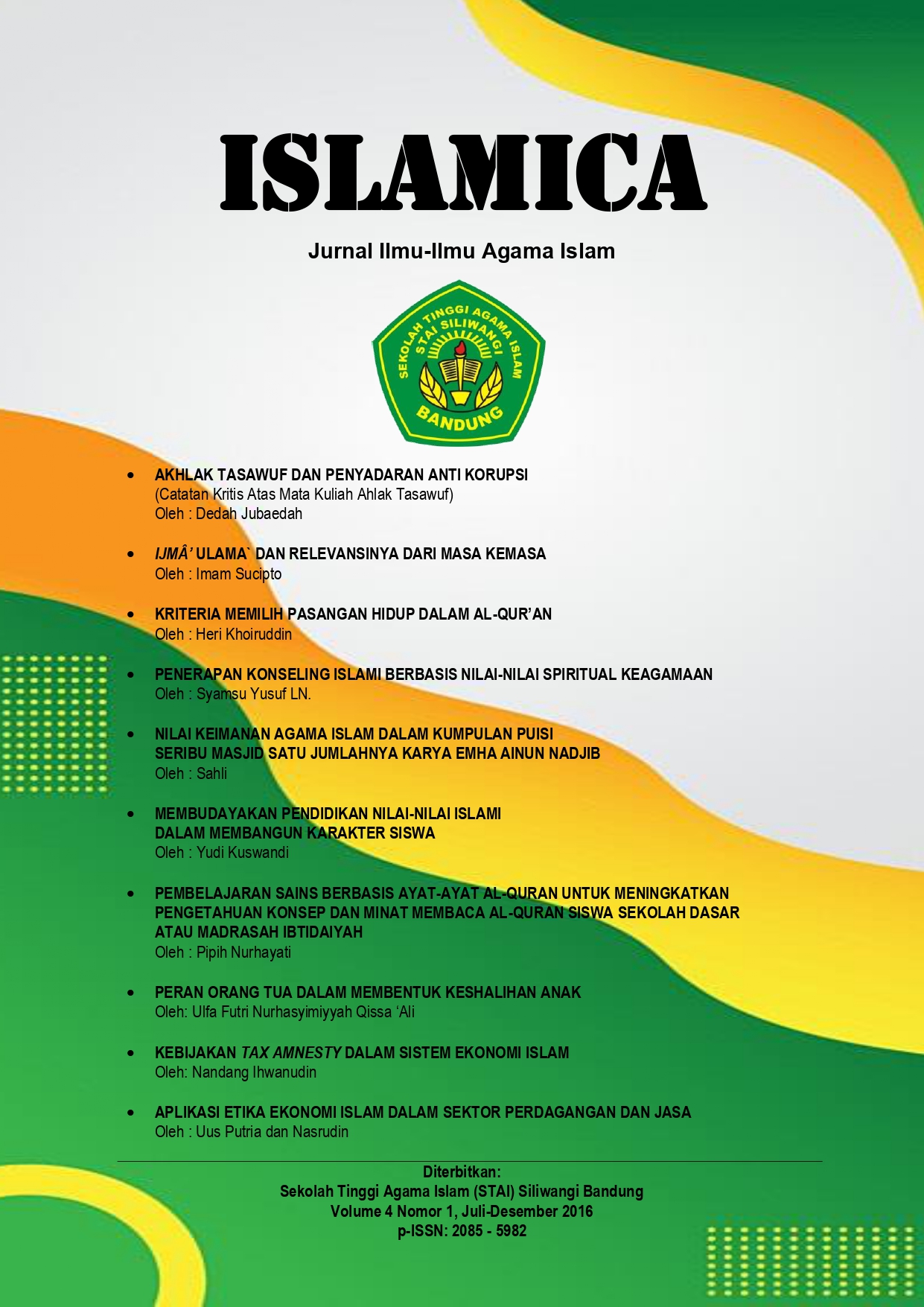Akhlak Tasawuf Dan Penyadaran Anti Korupsi
DOI:
https://doi.org/10.59908/islamica.v4i1.62Keywords:
morals, sufism, anti-corruptionAbstract
Scandinavian and South Korean countries, the high levels of corruption in Muslim countries are linked to weak political will and public tolerance to corruption. These two factors are born because the understanding and the religious attitude of the community. In this case, corruption in Muslim countries, particularly in Indonesia deals with the problem of the concept of piety that is understood by its society which emphasizes ritualistic piety rather than social piety, lack of contextualization of religious values which is in accordance with anti-corruption, socialization, Internalization through educational institutions, and institutionalization or process where the value or norms of anti-corruption of Islam practiced in everyday life.Surely Islam is rich with normative values and its traditional law for anti-corruption. Among them is forbidden risywah / bribe, that is a gift of material value or something that is promised to a person with the intention of influencing the decision of the recipient in order to benefit the patron unlawfully. This is because bribes will disrupt the legal and political system. In Islam, bribery as forced to obtain certain rights or to bring benefits, is allowed by some experts, but by some still prohibited / forbidden. The argument is that bribery is a bondage of sin; Bribery leads to the birth of decisions or actions that are unlawful; The act of bribery is tyranny; Because the principle in Islam that preventing harm should be put on rather than taking benefit, and for emergency reasons it is often subjective.Furthermore, normative values and traditional Islamic law are also seen from the concept of ghulul (the taking of state or public property by a non-entitled official) prohibited by QS 3: 161 and Hadith of Bukhari and Muslim where both mention that the perpetrators are threatened not to enter Paradise; The concept of khiyanat which means corruption or abuse of authority to enrich themselves; And corruption as a criminal act similar to hirabah or qath at-thariq (robbery). The reason is since the damage caused massive corruption (mafasid) of corruption in which corruption is caused is greater than the of ordinary individual theft.
References
A. Atmadi (ed.), Transformasi Pendidikan Memasuki Milenium Ketiga, Kanisius, Yogyakarta, 2001.
Hamka, Tasawuf Modern, Pustaka Panjimas, Jakarta, 1985.
Konsorsium Bidang Ilmu UIN SGD Bandung, Pandangan Keilmuan UIN Wahyu Memandu Ilmu, SGD Press, Bandung, 2005.
Neil Postman, Matinya Pendidikan Redefinisi Nilai-nilai Sekolah, Jendela, Yogyakarta, 1995.
Utomo Dananjaya, Sekolah Gratis Esei-esei Pendidikan yang Membebaskan, Paramadina, Jakarta, 2005.
Downloads
Published
How to Cite
Issue
Section
License
Copyright (c) 2016 Dedah Jubaedah

This work is licensed under a Creative Commons Attribution-ShareAlike 4.0 International License.


